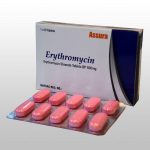
Erythromycin is a macrolide antibacterial with a wide spectrum of activity, that has been used in the treatment of a wide range of infections caused by susceptible organisms.
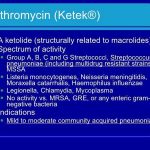
Diarrhoea and other gastrointestinal disturbances such as nausea, vomiting, abdominal pain, and flatulence are among the most common adverse reactions after use of telithromycin. Severe, but usually reversible, hepatic dysfunction, including elevation of liver enzymes and hepatitis, with or without jaundice has been reported; however, there have been cases of fatal hepatotoxicity including fulminant hepatitis, hepatic necrosis, and hepatic failure.
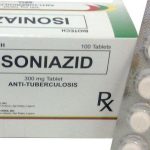
Isoniazid is a hydrazide derivative that is the mainstay of the primary treatment of pulmonary and extrapulmonary tuberculosis. It is used with other antituberculous drugs usually in regimens including rifampicin, ethambutol, and pyrazinamide. Isoniazid is also used in high-risk subjects for the prophylaxis of tuberculosis. Isoniazid is given in the initial and continuation phases of short-course tuberculosis regimens.
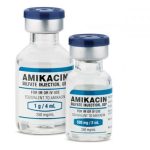
Amikacin is a semisynthetic aminoglycoside antibiotic derived from kanamycin and is used similarly to gentamicin in the treatment of severe Gram-negative and other infections. It is given as the sulfate, and is generally reserved for the treatment of severe infections caused by susceptible bacteria that are resistant to gentamicin and tobramycin.
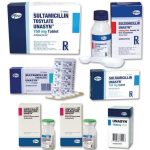
Sultamicillin is given orally as tablets containing sultamicillin tosilate or as oral suspension containing sultamicillin. It is used in the treatment of infections where beta-lactamase-producing organisms might occur, including uncomplicated gonorrhoea, otitis media, and respiratory-tract and urinary-tract infections.